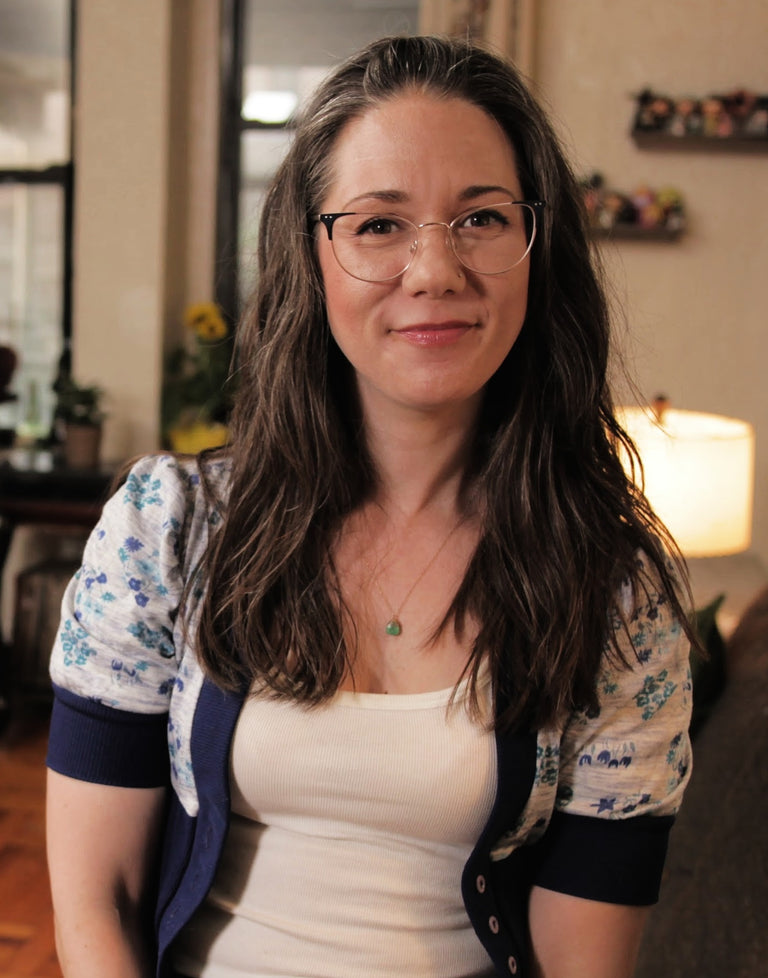Grief has been recognized as one of the greatest life stressors we face as human beings. And adding hair loss to the list of struggles you face when grieving is probably the last thing you want to do. Unfortunately, hair loss can be one of the negative effects grieving has on the body. Read on to learn more about hair loss caused by grief, plus what you can do to combat thinning hair.
What Happens to the Body During Grieving?
The grieving process often involves high levels of emotional distress, and this distress has very real impacts on the body. While the emotional and psychological challenges of grieving are completely normal, sometimes, the physiological consequences can be downright unpleasant.
“The connection between our bodies and our emotions is such that unresolved grief becomes stored inside us and produces a physical reaction,” explained Jocelyn Jackson Williams, a certified grief recovery therapist with the Grief Recovery Institute. “Losing your hair is just one example of the negative physical effects of grief being stored in our bodies,” she added.
Over the last several decades, research has shown that grief has a wide umbrella of effects on the body, impacting our cardiovascular, endocrine and immune systems. At its core, grieving is a very stressful experience, and stress can wreak havoc on our general health, including our hair follicles.
The stress of grieving typically leads to increased levels of cortisol and a general dysregulation of the hypothalamic-pituitary-adrenal (HPA) axis, a complex bodily system that mediates the effects of stressors. And while cortisol is a very important hormone to our everyday health, too much of it can trigger hair loss, along with other complications.
“Cortisol is a normal hormone that helps you to concentrate and to deal with stress in your life, but when you have too much of it, the result can be hair loss and other health issues including weight gain, depression and anxiety,” said Megan Harrison, licensed marriage and family therapist at Couple’s Candy.
If you’re experiencing hair loss while grieving, know that you’re not alone. While this hair loss can be alarming, it’s normal and, typically, a temporary condition that resolves on its own.
“My hair started falling out in clumps,” shared Jackson Williams of her own experience with grief-related hair loss. “My hair became so thin; it looked like I was ill. I went to a dermatologist to see if he could figure out what was wrong. He asked me if anything traumatic happened to me the past fall, and I told him that that was when my mother died. He responded, ‘And this is how your body is responding to that grief.’”
Hair growth is complex, and there are different types of hair loss, which begs the question: What kinds of hair loss could be caused by the grieving process?
What Kinds of Hair Loss Can Grief Cause?
The psychological and physical stress that grieving creates can impact hair in several ways. Here are a few of the most common ways grieving might impact your hair growth.
Telogen Effluvium
Often referred to as “stress hair loss,” telogen effluvium (TE) is the most common form of hair loss that is caused by grief’s impact on your body. Thankfully, this type of hair loss is considered temporary.
“Telogen effluvium is a form of hair loss in which more hair follicles will stop growing hair and go into the “resting stage” more quickly and at a much higher rate than normal, particularly after a traumatizing event,” Dr. Jae Pak, medical doctor and hair loss specialist.
The physical stress of grieving shocks your hair follicles prematurely out of their active growing phase, called the anagen phase, and into the resting phase, also called the telogen phase. With TE, it is the shock to the body caused by grief that kick-starts the hair loss process.
Follicles typically remain in the telogen phase for about three months, which is why people generally start to see hair fall a few months after the trauma. The good news is once your follicles are actively shedding hair, it’s likely because they have already begun to return to a normal growth cycle.
#include-related-slider#
Androgenetic Alopecia
Androgenetic alopecia, also known as male/female pattern balding or male/female pattern hair loss, is a kind of alopecia that is most often attributed to genetics. People who are genetically predisposed have follicles with a higher sensitivity to a group of hormones called androgens, and over time the follicles will miniaturize, causing your hair to grow finer and thinner with each new growth cycle.
The increased levels of cortisol caused by grieving can impact androgen levels in the body, so if you’re already genetically predisposed to androgenetic alopecia, grieving could potentially accelerate its development or progression.
Read: Madie Wilkes' Picks for Thicker-Looking Hair
Alopecia Areata
Alopecia areata (AA) is a hair loss condition that is believed to be caused by an autoimmune dysfunction, where the body mistakenly attacks hair follicles. Bereavement impacts the immune system, and the development of AA has been linked to high levels of stress, so a severe or prolonged period of grieving could potentially trigger this form of hair loss.
AA typically shows up as patchy hair loss, with round bald spots appearing on the scalp and body. It can resolve on its own, though it might also become a recurring problem leading to extensive and, in extreme cases, total hair loss.
Healing From Grief-Related Hair Loss
“The No. 1 piece of advice is to address the stressor — grief,” shared Dr. Anna Chacon, a board-certified dermatologist.
It probably comes as no surprise that in order to ease and reverse any hair loss you might be experiencing due to grief, you need to heal the grief. Loss is a deep trauma that everyone deals with in their own time and in their own way, but there are a few tools you can consider to support both the emotional healing process and a return to normal hair cycles.
Read: How to Regain Hair Loss From Stress
Alleviate Stress as Best You Can
Grieving brings along with it both deep sorrow and stress, and while these feelings are natural, there are ways to soften the sharper edges of this difficult experience.
Stress management tools like exercise, deep breathing, meditation, yoga, spending time outdoors and getting enough sleep are all ways you can lower cortisol levels in the body.
Read: 9 Ways to Naturally Lower Cortisol Levels
Choose Healthy Foods and Supplements
Healthy eating is something that many folks struggle with in the face of stress, but adding healthy food choices to the mix is a great way to support your body while grieving. Not only that, but neglecting your diet could lead to nutritional deficiencies that cause hair loss.
“After my mother's death in 2013, I experienced consistent hair loss that only reversed when I worked with a nutritionist to change my diet and supplement my stressed and grieving body with nutrients that would help me recover,” shared Shelby Forsythia, author of Permission to Grieve and host of the Coming Back: Conversations on Life After Loss podcast.
To multitask on the nutrition front, consider healthy foods high in magnesium and zinc that are known to lower cortisol levels, like pumpkin seeds, spinach and legumes.
Find Out: Nutritional Deficiencies That Lead To Hair Loss
Add TLC to Your Hair Routine
Be extra kind to your hair and your scalp while your body and mind heal. Avoid tight hairstyles like ponytails, braids, buns, heat styling and chemical treatments. When combing or brushing, be gentle!
Consider adding some follicular support to your hair care routine, like our bestselling GRO Hair Serum that has been carefully formulated with clinically-tested, vegan phyto-actives to help support a healthy and balanced scalp ecosystem while revitalizing hair roots.
After four months of use, GRO Hair Serum can:
- Reduces signs of shedding by up to 85%*
- Increase the appearance of hair density by up to 56%*
*Based on a 120-day independent, third-party clinical study with 40 participants using GRO Hair Serum once daily.
Seek Support
“A great way to heal is through talking about your emotions to a trusted professional, family member or friend,” said Jackson Williams.
Confiding in a friend, family member or grief counselor could be helpful in releasing emotion and stress from the body. A grief-specific support group is another option that many people find helpful because it allows you to share with others who are going through similar experiences.
Note that if your hair loss is causing excessive anxiety or it doesn’t clear up within a year, it might be time to consult with a doctor or dermatologist to determine if there are other issues that need to be addressed.
Up Next: How Often Should You Wash Thinning Hair?
Be Kind to Yourself
Resilience isn’t about plowing through your grief. It's more so about moving through it gracefully with self-compassion and acceptance. So if there are moments or days where you just can’t—just don’t. Give yourself the grace to do nothing more than breathe when needed and know that the difficult moments and days will pass.
#include-related-slider#
The Takeaway
Grieving a loss is one of the hardest emotional experiences we face as human beings, and it can have a variety of impacts on the body—grief hair loss being one of them. However, it’s usually only temporary.
Returning to regular hair growth means healing from your loss, and there are a variety of ways you can support yourself during this difficult time. Seek the support of friends, family or professionals while being kind and compassionate to yourself as you navigate the challenges and effects of grief.
More From VEGAMOUR
- Yes, It's Normal to Lose Hair After a Breakup or Divorce
- How Meditation Can Help You Hair
- Does Coconut Oil Help With Hair Growth?
- 5 Signs Your Hair Loss Is Stress Related
Photo by Julia Volk from Pexels
Back



















